Null Byte Features


News: Uber Is Offering Up to $10,000 to Anyone Who Finds Bugs in Their App or Website
If you want to make some money from catching bugs and are sick of pentesting Facebook, Google, and Microsoft's products, Uber may be your new favorite playground.
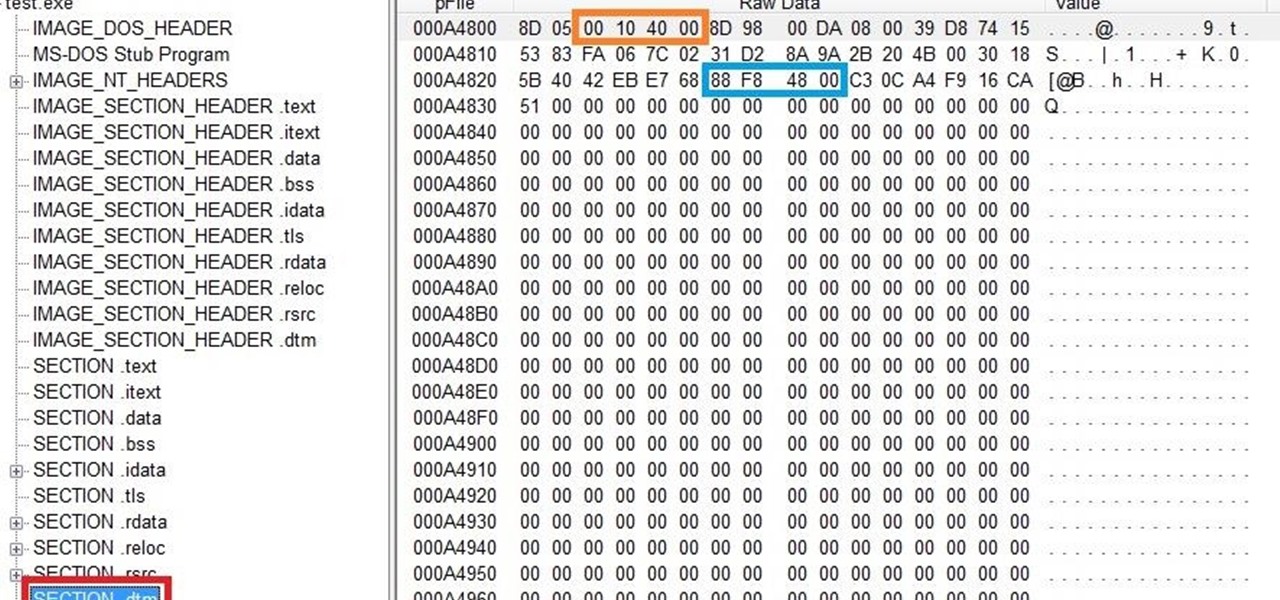
How To: An Extended Guide on Runtime Crypters
Hello again, folks! I'm back with another (final) guide on runtime crypters which is an extension on my previous runtime crypter guide. If you have not read it yet, I highly recommend that you do since the fundamental theory of the PE format. Again, this will be a Windows-specific guide, so I'll repeat this: If you're a hater and cringe at the slightest sound of Microsoft's grotesque baby, feel free to close this tab, delete your history, exit your browser, pour some oil onto your machine and...

How To: Create a MySQL Server BruteForce Tool with Python
Hello aspiring hackers, It's been a while since I wrote a tutorial, so I figured I might just share one of the tools that I have created to help the community grow.

Weekend Homework: How to Become a Null Byte Contributor (1/12/2012)
We're officially seeking Null Byters on a weekly basis who are willing to take the time to educate the community. Contributors will write tutorials, which will be featured on the Null Byte blog, as well as the front page of WonderHowTo (IF up to par, of course). There is no need to be intimidated if you fear you lack the writing skills. I will edit your drafts if necessary and get them looking top-notch! You can write tutorials of any skill level, about anything you feel like sharing that is ...

Networking Foundations: Basic IP Addressing (Part 2)
Welcome back my networking geeks. In this part we are going to keep discussing about IP Addressing and I hope after you finish reading it you will become an IP wizzard.

Goodnight Byte: HackThisSite Walkthrough, Part 10 - Legal Hacker Training
This is it! That last basic mission. Last Friday's mission was to accomplish solving HackThisSite, basic mission 11. This final mission in the basic series was made to give us the skills and a place to apply our Apache server knowledge. This will teach us how to traverse through awkward and custom directory structures.

How To: Use Postenum to Gather Vital Data During Post-Exploitation
Post-exploitation is often not quite as exciting as popping the initial shell, but it's a crucial phase for gathering data and further privilege escalation. Once a target is compromised, there's a lot of information to find and sift through. Luckily, there are tools available that can make the process easy. One such tool is Postenum.
How To: Make a Personal Diary with Notepad!
Welcome back, my neophytes! Many of you might have a personal diary and might think Why do I spend so much time to write in the damn diary? or Why waste money on the diary, even though you would be wanting it? It's time you found out a solution!

Community Byte: HackThisSite Walkthrough, Part 10 - Legal Hacker Training
Welcome to the 10th Community Byte session for coding in Python and completing the challenges presented to us by HackThisSite. These sessions are created to bring our community together, to learn from each other, and grow together. Everyone is welcome, from novice programmers to aspiring hackers.
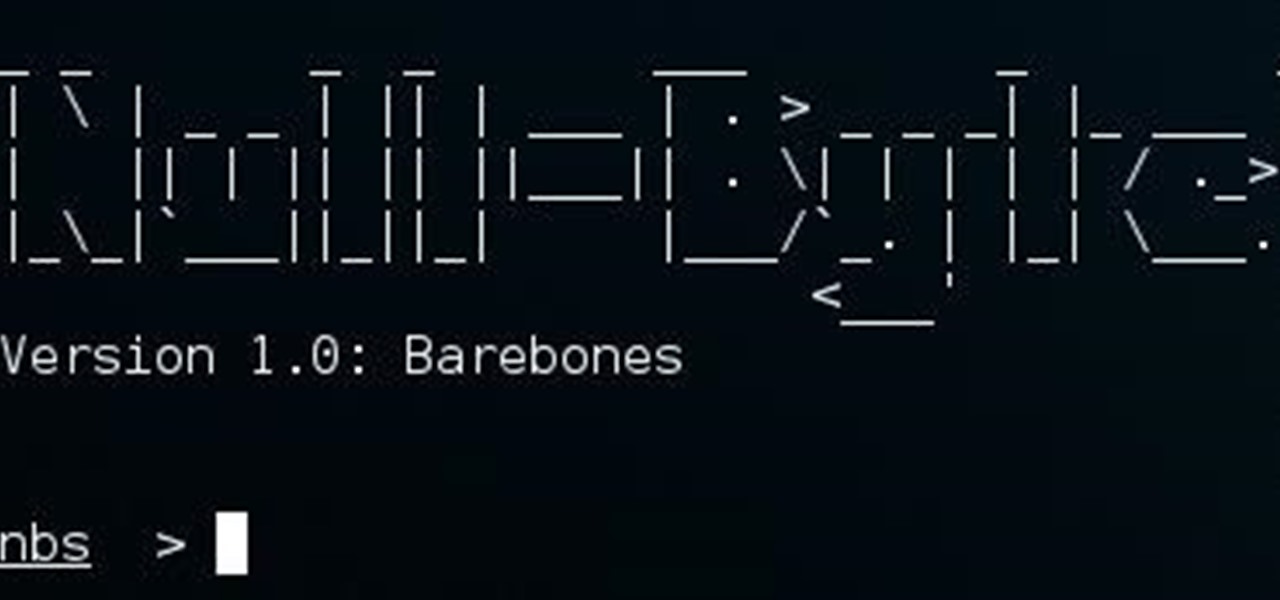
News: Announcing the Null Byte Suite!
Hello, everyone. If you've been following my recent articles, you'll know that I've been rather busy lately working on a project, a rather large one. I've been working with Pheonix750 and Ciuffy to build the Null Byte suite of tools! I got the green light from our admin a while ago, and we've been developing like mad ever since! I'm very excited to launch this project. So, let's start by explaining what it is...

How To: Advanced Cryptography - Total Guide
Hello people again, I wrote my last post about crypto about 10 months ago, now I will introduce something not fresh for the science, but fresh for the people who wants to learn. In my http://null-byte.wonderhowto.com/forum/cryptography-0161538/ post of crypto concepts, there is just basics, today we will see something that targets wide concepts like Symmetric crypto, Public Key Cryptography, Hashing, Keys etc...

How To: Security-Oriented C Tutorial 0x21 - Linked Lists
Welcome to the final tutorial of the series on standard C. This article will cover the linked list abstract data type (ADT). There will be a lot of abstraction to try to deliver the understanding in the most basic way for easiest interpretation of what they are and how they work, then we will get into the guts of it and learn the technical code underneath. For those who have yet to grasp the concept of pointers, it's advisable that you do that first before approaching this. Having learned thi...
How To: Bypassing School Security (White-Hat)
While following a tutorial on python recon tools, I found a new way to access the command prompt on a school network. While there are other ways of bypassing security, it's nice to learn use Python's OS library.

How To: Creating Unique and Safe Passwords, Part 1 Using Wordlists
Greetings fellow hackers. This tutorial is about creating "safe" passwords. This is different from strong passwords. Safe passwords is just creating a password that is not used by someone else or colleague, my definition. But how do you prevent something like this from happening? Of course you won't ask your friend if s|he is using the password you are about to create. Before I show you some of my tele-psychic powers like Professor Xavier, you might want to read this for advice on creating "s...

Hacking macOS: How to Spawn Multi-Threaded Netcat Backdoors on a MacBook
An attacker can create three, five, or even ten new Netcat connections to a compromised MacBook with one command. Performing complex post-exploitation attacks might otherwise be difficult from a single shell without this essential trick.

How to Train Your Python: Part 20, Masters of the Basics
Welcome back everyone. This article isn't going to contain anything related to scripting, but rather some updates about the series. We'll be quickly discussing what we've covered so far and what is to come.

News: Airline Offers Frequent Flyer Miles to Hackers
One more business has decided that rewarding hackers to find flaws in their computer systems is a wise investment! As you know, a number of software companies offer bug bounties, and some of these can be quite lucrative. Google, for instance, offers a bounty of $150,000 for anyone who can hack their Chrome operating system, and many other companies are offering similar bounties, although, not quite as lucrative. Now, United Airlines has decided to offer frequent flyer miles to hackers who fin...

Real Scenarios #2: The Creepy Teacher [Part 2]
In part one of this tutorial we found out that your English teacher is a paedophile, by using a Man in the Middle attack to intercept his internet traffic.

How To: Security-Oriented C Tutorial 0x04 - Control Structures Part I: If Statements
Welcome back to another C tutorial, this post covering the first part of control structures, if statements. Let's get right into it.

Compile a Linux Kernel Part 1: Theory...a Lot of Theory (1/2)
!!!WARNING!!! !!!Because of misleading informations please wait for the new post about this same argument instead of reading this post!!!

Botnets and RATs : Precautionary Measures and Detection (Part 2)
Hola my fellow hackers! I promised you the tutorials on setting up RAT's and Botnets, but before jumping into those, i want you to know about the precautionary measures and detection of RATs which might be on the system without your prior knowledge. Of course the Anti-virus do most of the job but there are some RATs which slips past the Anti-viruses (This is where Hacker's skill come into play).
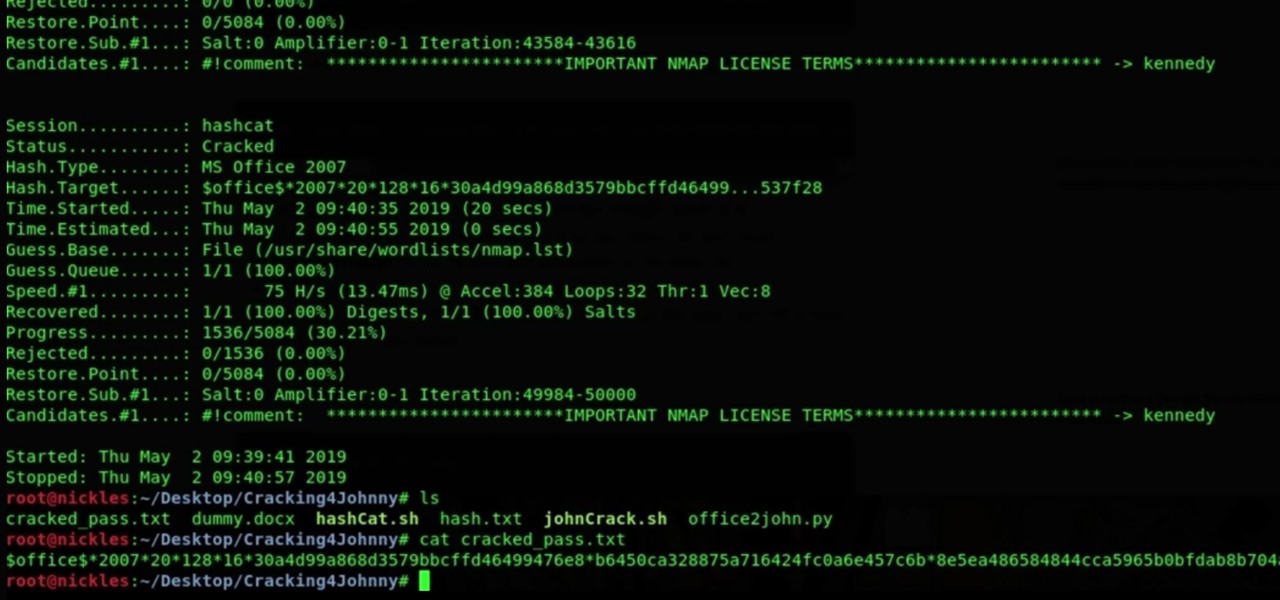
How To: Expand Your Analytical & Payload-Building Skill Set with This In-Depth Excel Training
It's nearly impossible not to be at least somewhat familiar with Microsoft Excel. While it's needed for many office jobs and data analysis fields, hackers could also benefit from improving their spreadsheet skills. Many white hats already know some of the essential Excel hacks, such as cracking password-protected spreadsheets, but there's so much more to know from an attack standpoint.
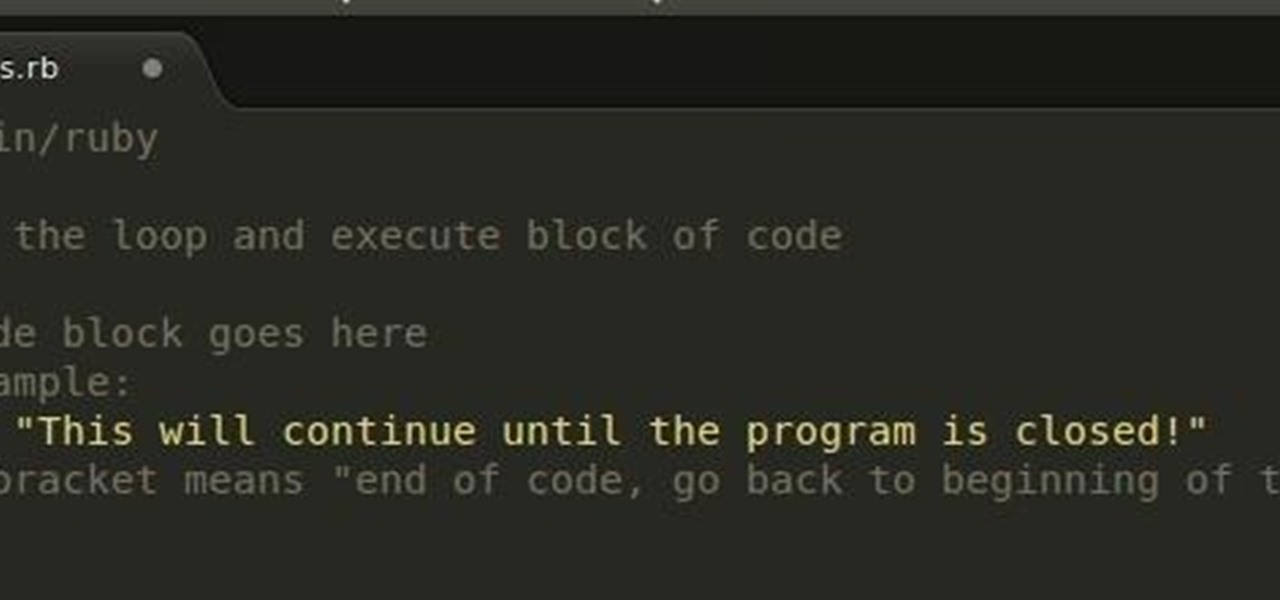
Basics of Ruby: Part Two (Loops)
In the last Ruby article, we talked about how to store information in three different kinds of storages: variable, array, and a hash. After we get the data, we have many ways of using them, but, for right now,

News: Hack the Switch? Nintendo's Ready to Reward You Up to $20,000
It's always nice getting paid to do something you love. That's why Nintendo is offering all Nintendo Switch owners a chance to find vulnerabilities before another hacker beats them to it first. Depending on the vulnerability you find, Nintendo is willing to shell out rewards starting at $100, all the way to $20,000, to the first bug reporter who uncovers it.

How To: An Introduction to IPython
What Is IPython? IPython is a richly featured replacement for the standard python interpreter. It offers a wider range of functionality, that the standard

How To: Security-Oriented C Tutorial 0x02 - Variables && Data Types
Hello again, reader! In this post, we are going to cover some data types and how to declare variables. It shouldn't be too hard so just sit back, relax, grab some popcorn and enjoy the ride (while you still can!).

How To: Shellcoding Part 1.1
so in part 2 we will discuss more, liek, How to use this on windows???! And how to use the glibc function!!! Also we will discuss some other techniquez!

News: Basic Math Operations
It was brought up a while back in a Community Call to Arms that *math* is handy for encryption (and let's face it, everything) so let us go over things you just have to know. "In its simplest meaning in mathematics and logic, an operation is an action or procedure which produces a new value from one or more input values."[source]

TypoGuy Explaining Anonymity: Staying Hidden from the NSA
We all know them, and many of us despize them. And some might support them, regardless many have different opinions.

News: Chinese Hack of U.S. Employment Records Reveals the Weakness of Signature-Based Defense Systems
With each day that dawns, there is a new, major hack that makes the news headlines. If you are paying attention, there are usually numerous hacks each day and far more that never make the news or are kept private by the victims. Every so often, a hack is so important that I feel compelled to comment on it here to help us learn something about the nature of hacking and IT security. This is one of those cases. Last week, the U.S. Office of Personnel Management (OPM) revealed that they had been ...

How To: Protect Yourself Against Black Hats! [DEFENSE SERIES PART 1]
Hi! Let me get started on this subject as it is a very "touchy" subject. We all want to "hack" these days, and that's logical. Te be real honest here, i was inspired once by the words someone from the Null byte community said. In the (near) future, wars will be ended by computers and not a nuclear missile. That's something i really do believe in. But let us take a defensive measure instead of the offensive one. Sure, Full frontal bryte forcing is an option, but when it'll come that far we'll ...
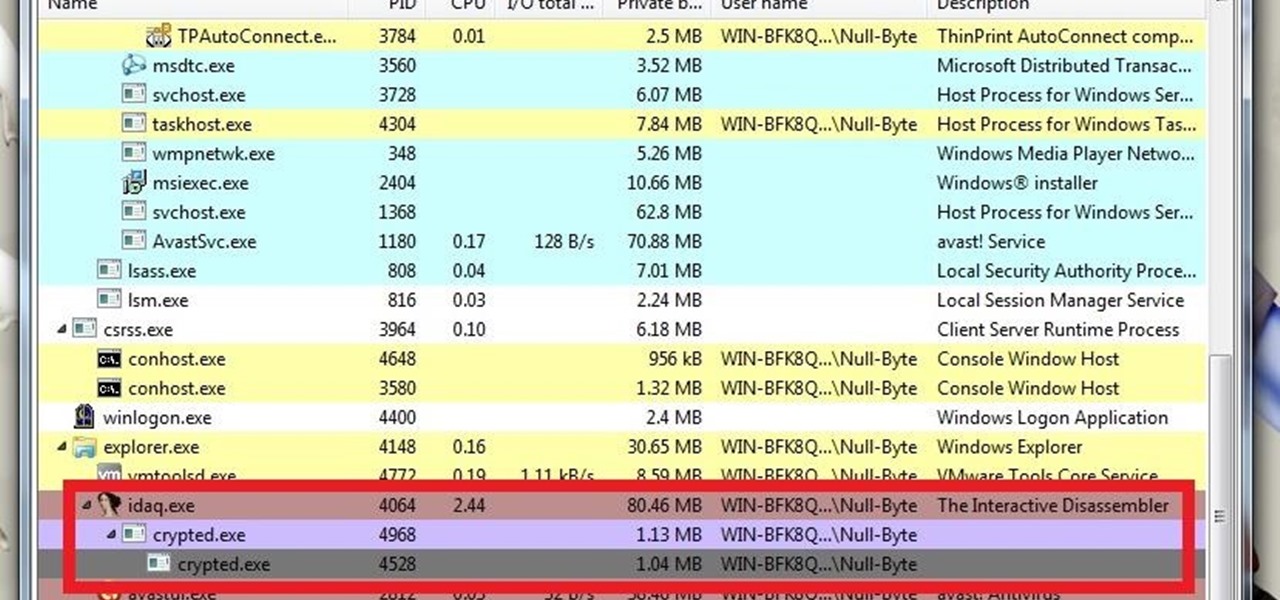
How To: Reversing and Analyzing a Runtime Crypter
What's up guys? Welcome to a sort of general walkthrough on how one might approach a reversing and analysis on a crypted malware. This is by no means a universal technique so don't assume that this will occur in every scenario, it's more of a demonstration than anything really.

Where Do I Start: Learn the Fundamentals
I am very new to Null Byte but I find much of its content and community incredibly interesting. I spent quite a bit of time just chronologically going through the posts and I noticed a common theme in many of the beginner posts. Many people seem to want to know the 'secret' or a paragraph on "How to Hack" and become a hacker in a few minutes. I started off this post as a reply to a question from a beginner but thought it might be beneficial to have for those stumbling across this site.

Networking Foundations: Dynamic Host Configuration Protocol
Hello ladies and gentlemen, PySec here coming at you with another informative(hopefully) article for you all. In the last tutorial, we finally finished our discussion about IP Addressing and I intentionally didn't mention a really important concept with which IP Addressing wouldn't be feasible without it. What I'm talking about is how our network device gets the IP Address in order to communicate with other devices on the network/Internet. There are many different ways for that to be accompli...

News: Cannot find windows loader after Linux install?
Have you ever had this happen? Your main OS is windows, and you just istalled a nux dualboot. But when you installed GRUB to the mbr, your windows loader got deleted! Hence you are not able to get into windows anymore... Sucks. But there's also a solution!

How To: Become a Computer Forensics Pro with This $29 Training
The increasingly important world of white hat or "ethical" hacking is getting competitive. Thanks to growing salaries and opportunities for talented and trained coding pros who can infiltrate servers and safeguard networks against digital threats, demand for intrepid cyber warriors is through the roof, and it shows no signs of slowing down any time soon.

Basics of Ruby: Part 1 (Data Types/Data Storage)
Ruby is a dynamic, general-purpose programming language created by Yukihiro "Matz" Matsumoto in Japan around the mid-90's. It has many uses but with it's flexibility, it makes a great language to write exploits in. In fact, the entire Metasploit Framework is written in Ruby! The sole purpose of this series is to teach hackers the basics of Ruby, along with some more advanced concepts that are important in hacking.

How To: Attack on Stack [Part 5]; Smash the Stack Visualization: Remote Code Execution and Shellcode Concept.
Hi everyone! In the previous part of this series, I introduced one way to hijack a program's execution flaw, though I only showed you how to crash the program and left you with a little mystery to solve. Today we are giving the solution of that and then introducing shellcode usage and remote command execution.

How To: Security-Oriented C Tutorial 0x0E - Functions Part II: Memory
In the last tutorial, we learned how to make functions and how they work on the high level. This time, we will take a peek under the hood again, stare deep into its soul and see its ugliness face to face to see how it works in the lower level.







